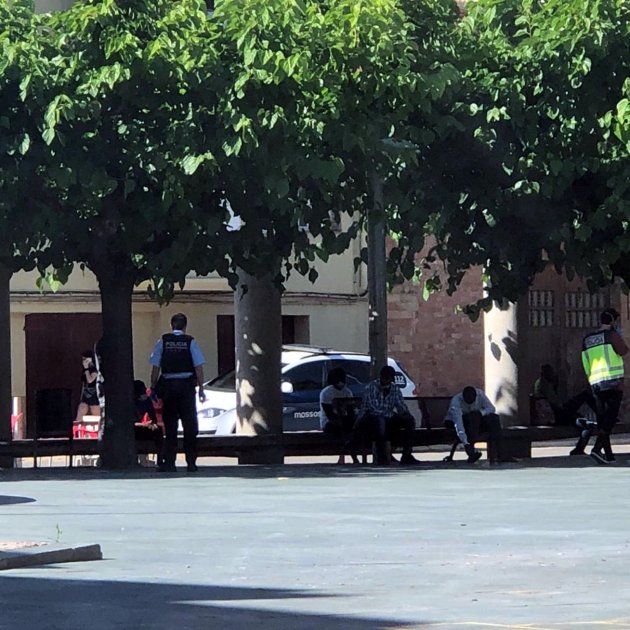The publication of a manifesto this Tuesday has put on display how the new coronavirus lockdown affecting Lleida city and the Segrià county - in the interior of Catalonia - is also related to complex social and economic issues affecting the area. "Neither seasonal workers nor farmers are to blame" for this resurgence of Covid-19, asserts the manifesto, which is signed by about seventy people from all walks of life.
In the text, entitled "Lleida is not that, and its not like that", they demand "economic, health and social resources to end the serious problem of people who come to Lleida seasonally to work on the land." As well, they call for the "comprehensive policies" set down by the World Health Organisation to be properly implemented: the mantra of testing, tracing, isolating and quarantining of those affected.
The Segrià fruit growing area, "one of the agricultural treasures of Catalonia" and a major part of the economic fabric in the area affected by the lockdown, requires a large amount of seasonal labour for fruitpicking. The manifesto speaks of "the arrival of thirty thousand people looking for work, many without employment contracts or residency papers". And while acknowledging the problems that exist, the text says the situation has been misrepresented and that the local society and economic sector have been unfairly demonised - accused of racism, in particular.
The signatories consider that "a simplistic and biased interpretation of reality has been made", even by the authorities. They accuse the Spanish government, the Catalan government and the Lleida city council of all "looking for scapegoats outside their own sphere of responsibility and, as a last resort, blaming individuals." "They have tried to blame the rural world in general for the situation of temporary workers and their lack of health control, making this sector, in general, guilty of this situation".
They also criticize the media for having given, in their opinion, "a distorted and biased image of the reality of Lleida, taking sides." The manifesto explains how most of the temporary labour needed is contracted at source and returns year after year, but there is also an annual arrival of thousands of uncontracted people looking for work.
They say that the Lleida countryside has a "double problem". On the one hand, the "difficult business management of small and medium-sized agricultural enterprises" and, on the other, "the serious social and health problem, the product of poor management of the resources dedicated to the general population and to the temporary (not seasonal workers) population in each area ".
They assert that Lleida is a "young, open" city and that the broader Segrià region will always be a "place of welcome" to people from outside, "and it has been in much greater proportions than other areas of Catalonia." The text acknowledges that racism "unfortunately" exists throughout society but that the suggestion that the agricultural sector is affected by "generalised and exacerbated racism" is "radically false". For all these reasons, the manifesto calls on the authorities to give information about "the true reality of the city and its region" and launch a campaign "to restores the prestige it does not deserve to have lost."
The signatories
The manifesto is published with the initial names and professions of around seventy people: from farm workers to university professors, retired people, civil servants, professionals, etc.


